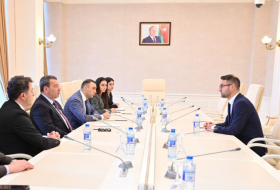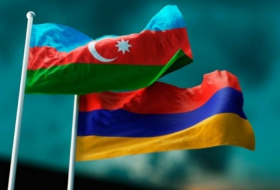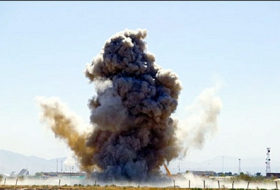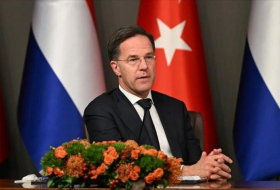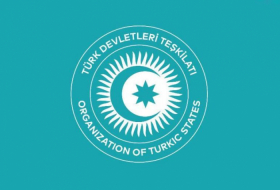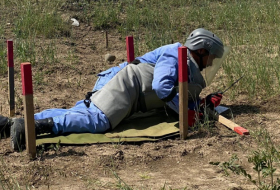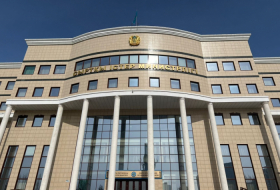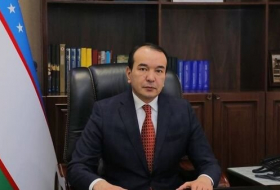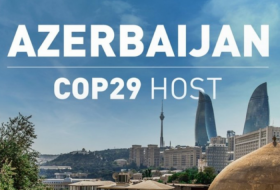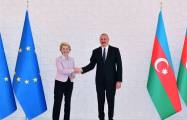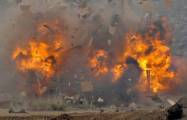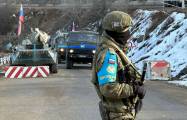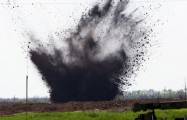`Lack of adequate international reaction to Armenia’s illegal actions contributes to growing impunity`
.jpg)
“Such measures include implantation of settlers from Armenia and abroad, destruction and appropriation of historical and cultural heritage, illegal economic and other activities, exploitation and pillage of and illicit trade in assets, natural resources and other forms of wealth across the occupied territories, accompanied by substantial and systematic interference with the public and private property rights,” said the statement.
It is particularly troubling that these activities are continued against the background of the ongoing efforts towards the earliest political settlement of the conflict, said the permanent mission.
The permanent mission noted that the lack of adequate international reaction to these actions of the Armenian side only contributes to its growing sense of impunity and permissiveness.
“The evidence shows that Armenia, directly by its own means and indirectly through the subordinate separatist regime that it created in the occupied territories and with the assistance of Armenian diaspora, not only continued, but expanded the illegal activities in these territories,” the statement said.
The permanent mission reiterated that Azerbaijan brought to the attention of the international community that in a new settlement wave, Armenia encourages and facilitates resettlement of Syrian Armenians in the occupied territories.
“Just recently, on 24 July 2016, the agent of the subordinate separatist regime Bako Sahakyan traveled to the occupied district of Lachin of Azerbaijan with a purpose of inspecting the construction of the hydropower plant on the Zabukh river,” said the statement. “During the visit, Sahakyan also met with so-called “representatives of regional administration” and discussed the issue of resettlement of Armenians to the occupied Lachin district.”
Azerbaijan calls upon the OSCE participating states and relevant OSCE structures, institutions and field missions, including OSCE Office in Yerevan to oblige Armenia to comply scrupulously with its international obligations, the permanent mission added.
The Nagorno-Karabakh conflict entered its modern phase when the Armenian SRR made territorial claims against the Azerbaijani SSR in 1988.
A fierce war broke out between Azerbaijan and Armenia over the Nagorno-Karabakh region of Azerbaijan. As a result of the war, Armenian armed forces occupied some 20 percent of Azerbaijani territory which includes Nagorno-Karabakh and seven adjacent districts (Lachin, Kalbajar, Aghdam, Fuzuli, Jabrayil, Gubadli and Zangilan), and over a million Azerbaijanis became refugees and internally displaced people.
The military operations finally came to an end when Azerbaijan and Armenia signed a ceasefire agreement in Bishkek in 1994.
Dealing with the settlement of the Nagorno-Karabakh conflict is the OSCE Minsk Group, which was created after the meeting of the CSCE (OSCE after the Budapest summit held in Dec.1994) Ministerial Council in Helsinki on 24 March 1992. The Group’s members include Azerbaijan, Armenia, Russia, the United States, France, Italy, Germany, Turkey, Belarus, Finland and Sweden.
Besides, the OSCE Minsk Group has a co-chairmanship institution, comprised of Russian, the US and French co-chairs, which began operating in 1996.
Resolutions 822, 853, 874 and 884 of the UN Security Council, which were passed in short intervals in 1993, and other resolutions adopted by the UN General Assembly, PACE, OSCE, OIC, and other organizations require Armenia to unconditionally withdraw its troops from Nagorno-Karabakh.











